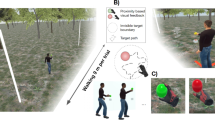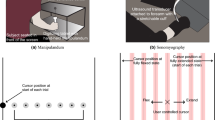Abstract
IN an interesting review of Lankester's “Comparative Longevity in Man and the Lower Animals,” which recently appeared in the Times, is the following sentence:—“Once commenced, its continuance (that of the act of walking) is quite involuntary, and may even be unnoticed by the consciousness.” I am anxious to ascertain, from those readers of NATURE who have paid special attention to psychology, whether this is, in their opinion, a correct statement of the condition of the mind during such an habitual act as that of walking. There are undoubtedly certain actions of the body, those denominated reflex, which are performed without any exercise of the will whatever; but these are all either momentary, or, if continued, are nearly uniform and unchanging. To me it seems impossible that any action which is constantly varying can be wholly involuntary. Take, for instance, the motion of the fingers in writing: we are absolutely unconscious of the exercise of the mental faculties by which each successive change in the position of the pen is regulated; but yet is it not certain that each up-stroke and down-stroke is the consequence of a separate effort of the will? There is here an evident connection between the state of mind at the time and the action of the body; and by what other means is it possible to suppose that the mental act which conceives the word we are writing can convey its instruction to the fingers? Certainly not by any process of instinct. A better instance perhaps is in the motion of the muscles of the face and throat in speaking. These muscles are entirely under the control of the will; and every separate motion of them must surely be effected by a distinct voluntary effort, of which however we are entirely unconscious. The same seems to me the case in walking. When we sway the body out of the perpendicular in turning a corner, I am at a loss to understand how this can be performed involuntarily. The explanation seems to me to be that consciousness cannot, so to speak, work so fast as volition, and therefore cannot take cognizance of a large number of rapidly successive acts of the will. The question is not so much one of a nice metaphysical distinction as simply of a correct use of terms, although I am afraid I am opposing the views of such high authorities as Huxley and Carpenter. We have been made familiar with the term Unconscious Cerebration. Is there not also an enormous field of Unconscious Volition?
This is a preview of subscription content, access via your institution
Access options
Subscribe to this journal
Receive 51 print issues and online access
$199.00 per year
only $3.90 per issue
Buy this article
- Purchase on SpringerLink
- Instant access to the full article PDF.
USD 39.95
Prices may be subject to local taxes which are calculated during checkout
Similar content being viewed by others
Author information
Authors and Affiliations
Rights and permissions
About this article
Cite this article
BENNETT, A. Consciousness and Volition. Nature 6, 473 (1872). https://doi.org/10.1038/006473b0
Issue date:
DOI: https://doi.org/10.1038/006473b0



